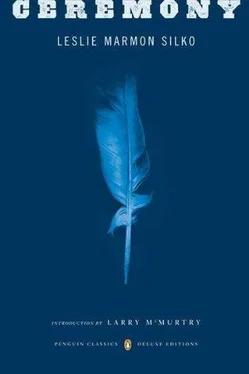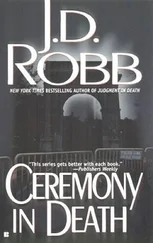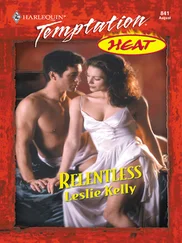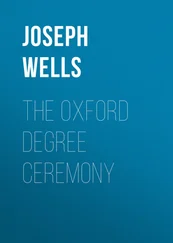He lay in a shallow depression and heaped piles of dry leaves over himself until he felt warm again. He looked up through the branches and the leaves, which were yellow and soft, ready to fall; the sky was heavy and dark, and purple veins striated the gray swollen clouds dragging their bellies full of snow over the mountaintop. The smell of snow had a cold damp edge, and a clarity that summer rain never had. The scent touched him deep behind his belly, and he could feel the old anticipation stirring as it had when he was a child waiting for the first snowflakes to fall.
He lay there and hated them. Not for what they wanted to do with him, but for what they did to the earth with their machines, and to the animals with their packs of dogs and their guns. It happened again and again, and the people had to watch, unable to save or to protect any of the things that were so important to them. He ground his teeth together; there must be something he could do to still the vague, constant fear unraveling inside him: the earth and the animals might not know; they might not understand that he was not one of them; he was not one of the destroyers. He wanted to kick the soft white bodies into the Atlantic Ocean; he wanted to scream to all of them that they were trespassers and thieves. He wanted to follow them as they hunted the mountain lion, to shoot them and their howling dogs with their own guns. The destroyers had sent them to ruin this world, and day by day they were doing it. He wanted to scream at Indians like Harley and Helen Jean and Emo that the white things they admired and desired so much — the bright city lights and loud music, the soft sweet food and the cars — all these things had been stolen, torn out of Indian land: raw living materials for their ck’o’yo manipulation. The people had been taught to despise themselves because they were left with barren land and dry rivers. But they were wrong. It was the white people who had nothing; it was the white people who were suffering as thieves do, never able to forget that their pride was wrapped in something stolen, something that had never been, and could never be, theirs. The destroyers had tricked the white people as completely as they had fooled the Indians, and now only a few people understood how the filthy deception worked; only a few people knew that the lie was destroying the white people faster than it was destroying Indian people. But the effects were hidden, evident only in the sterility of their art, which continued to feed off the vitality of other cultures, and in the dissolution of their consciousness into dead objects: the plastic and neon, the concrete and steel. Hollow and lifeless as a witchery clay figure. And what little still remained to white people was shriveled like a seed hoarded too long, shrunken past its time, and split open now, to expose a fragile, pale leaf stem, perfectly formed and dead.
It was still dark when he woke up, and he could feel flakes of snow blowing in the wind. He couldn’t see if the sky in the east was getting light yet, because the storm clouds were still dense and low. He shook the snow off his hair; the oak leaves had held a shell of snow around him. He stood up and brushed the leaf dust away and pissed a yellow steaming slash through the snow.
He walked southeast. He went slowly because his whole body was sore and because the snow was rapidly covering the ground, even the big rocks, making it difficult to follow the trail even as the darkness dissolved into gray light. The sky was dense and gray; it was difficult to estimate distances. He turned and looked back in the direction of the mountain, but it was hidden in a swirling mass of wet clouds. He ate a handful of snow, blinking the flakes off his eyelashes as he tried to face the direction the storm was coming from, because the cowboys had gone that way. A gust of wind brought the center of the storm down, and big flakes fluttered around his head like summer moths crowding the sky, rising high over the edges of wet black lava and the tips of yellow grass.
The snow was covering everything, burying the mountain lion’s tracks and obliterating his scent. The white men and their lion hounds could never track the lion now. He walked with the wind at his back. It would cover all signs of the cattle too; the wet flakes would cling to the fence wire and freeze into a white crust; and the wire he had cut away and the gaping hole in the fence would be lost in the whiteout, hidden in snow on snow. Under his feet the dark mountain clay was saturated, making it slippery and soft; the ranch roads would be impassable with sticky mud, and it would be days before the cowboys could patrol the fences again. He smiled. Inside, his belly was smooth and soft, following the contours of the hills and holding the silence of the snow. He looked back at the way he had come: the snowflakes were swirling in tall chimneys of wind, filling his tracks like pollen sprinkled in the mountain lion’s footprints. He shook his head the way the deer shook snow away and yelled out “ahooouuuh!” Then he ran across the last wide flat to the plateau rim.
The snow packed under his feet with a hollow sound. The big snowflakes still crowded behind him like the gauzy curtains in the woman’s house. He stood on the rimrock and looked over the edge, down on the dark evergreens and piñon trees growing thick on the steep canyon slopes. He had to walk about a hundred yards north to find the place where the trail went down between two big piñon trees. He pulled a piñon cone from the snowy branches and shook the fat brown piñons into his hand. He ate them as he walked, cracking the shells one by one, working the nut meat loose with his tongue. He spit the shells into the snow below the trail and tried to see into the distance below the mesa, over the edge of the steep trail where her house was. Then behind him he heard someone singing. A man singing a chant. He stopped and listened. His stomach froze tight, and sweat ran down his ribs. His heart was pounding, but he was more startled than afraid.
Hey-ya-ah-na-ah! Hey-ya-ah-na-ah!
Ku-ru-tsu-eh-ah-eh-na! Ku-ru-tsu-eh-ah-eh-na!
to the east below
to the south below
the winter people come.
Hey-ya-ah-na-ah! Hey-ya-ah-na-ah!
Ku-ru-tsu-eh-ah-na! Ku-ru-tsu-eh-ah-eh-na!
from the west above
from the north above
the winter people come.
eh-ah-na-ah!
eh-ah-na-ah!
antlers of wind
hooves of snow
eyes glitter ice
eyes glitter ice
eh-ah-na-ah!
eh-ah-na-ah!
antlers of wind
antlers of wind
eh-ah-na-ah! eh-ah-na-ah!
The voice faded in and out, sometimes muffled or lost in the wind. He recognized phrases of the song; he had heard the hunters sing it, late in October, while they waited for the deer to be driven down from the high slopes by the cold winds and the snow. He waited until the hunter saw him before he spoke. He was carrying a small fork-horned buck across his shoulders, steadying the load by gripping the antlers in one hand and the hind legs in the other. He smiled when he saw Tayo.
He wore his hair long, tied back with white cotton string in the old style the men used to wear. He had long strings of sky-blue turquoise in his ears, and silver rings on four fingers of each hand. His face was wide and brown, and the skin was smooth and soft like an old woman’s. Instead of a jacket, he was wearing a long fur vest sewn with gray rabbit pelts. The fur was old, and there were small bald patches where the bare skin showed through. The elbows of the brown flannel shirt were worn thin, as if his elbow bone might poke through anytime. But the cap he wore over his ears was made from tawny thick fur which shone when the wind ruffled through it; it looked like mountain-lion skin.
“You been hunting?” he asked, sliding the carcass down from his shoulders into the snow. Tayo noticed that he had already tied delicate blue feathers to the tips of the antlers.
Читать дальше












